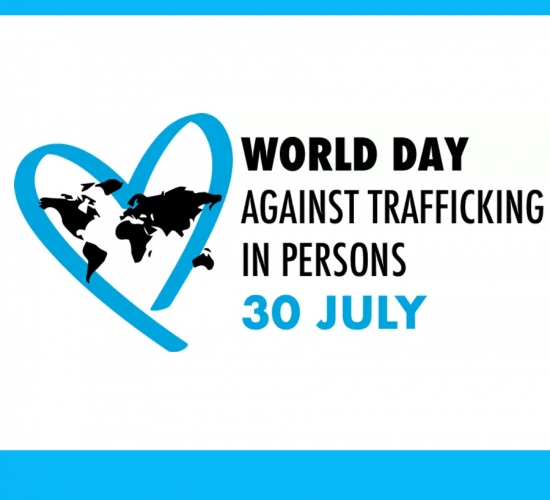WOCON CELEBRATING WORLD’S DAY AGAINST HUMAN TRAFFICKING 2020

THEME: COMMITTED TO THE CAUSE- WORKING ON THE FRONTLINE TO END HUMAN TRAFFICKING
The United Nations defines human trafficking as the recruitment, transportation, transfer, harboring, or receipt of persons by improper means (such as force, abduction, fraud, or coercion) for an improper purpose including forced labor or sexual exploitation.
On the basis of the definition given in the Trafficking in Persons Protocol, it is evident that trafficking in persons has three constituent elements;
The Act (What is done) Recruitment, transportation, transfer, harbouring or receipt of persons.
The Means (How it is done) ...
The Purpose (Why it is done)
Courtesy: UNODC
- The Global Slavery Index in July 2018 indicated that of the 40.3 million victims of modern slavery worldwide, 71% of were women and girls and 25% were children.
- Modern day slavery is most prevalent in Africa (with 9.24 million slaves and an average vulnerability score of 62/100).
- Nigeria ranks 32/167 of the countries with the highest number of slaves – 1,386,000.
- It is the third most common crime in Nigeria after drug trafficking and economic fraud (UNESCO, 2006)
- NAPTIP reports that the average age of trafficked children in Nigeria is 15
- Nigeria is routinely listed as one of the countries with the largest number of trafficking victims overseas (particularly in Europe).
Preventing human trafficking
“When it comes to prevention of human trafficking, we must first of all pay attention to the causes that lead to the situation of trafficking”.-Citizens Association For Combating Trafficking in Human Beings And all Forms of Gender.
- The general factors that increase vulnerability to trafficking in Nigeria include extreme poverty (now the world’s poverty capital), corruption, conflict, climate change/resulting migration and western consumerism.
- Traffickers tend to exploit the needs of the vulnerable so in addition to other preventive measures; prevention strategies should include meeting the needs of vulnerable individuals in the community.
Ways to help prevent human trafficking
- LEARN- Attend seminars and conferences, doing online courses, and visiting Shelters to understand the experience of survivors so you can get basic knowledge of the issues and their indicators.
- MONITOR AND REPORT-If you are in Nigeria and believe someone may be a victim of human trafficking, or is about to be smuggled, contact NAPTIP via: Hotline at (+234) 703 0000 203 Or The toll free number at (0800CALLNAPTIP)
- ENGAGE YOUR POLITICAL AND RELIGIOUS LEADERS- Engage your local government area or community leaders to let them know you care about combating human trafficking, ask what they are doing to address it. Religious leaders are also quite influential. Using their platform to sensitise the community will be a step in the right direction.
- VOLUNTEER- In Nigeria, there are hundreds of organizations tackling human trafficking that you can volunteer for.
- RAISE AWARENESS- You can partner with local anti-human trafficking organization to host events to raise awareness. You can also use SOCIAL MEDIA to raise awareness about human trafficking.
- FUNDRAISER- Organize fundraisers for and personally donate (if you can) to anti-trafficking organisations.
- EMPOWER VULNERABLE PEOPLE AND VICTIMS- Create oppurtunities for survivors, women and youths especially as this can shield them from being victims of human trafficking.
JOIN US AT WOMEN'S CONSORTIUM OF NIGERIA (WOCON) TO STOP HUMAN TRAFFICKING NOW.
REPORT SUSPICIOUS ACTS TODAY…
WOCON... STANDING AGAINST ALL FORMS OF HUMAN TRAFFICKING...
